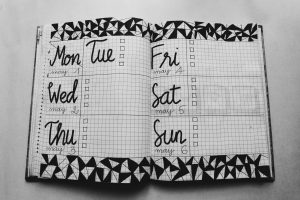
In this series, we will be discussing different aspects of talking about dementia from the first talk you might have with a loved one, to speaking with a doctor, to how to speak with someone who has dementia in a dignified manner.
As we have discussed in previous blogs, and many of you already have experienced as caregivers, one of the best practices for those with Alzheimer’s and dementia is to be kept on a strict routine. This routine helps limit confusion and frustration leading to more good days. But keeping a tight routine isn’t always possible because……life happens. In this blog, we are going to talk about how to plan for a change in routine when you know ahead of time.
(We will cover unexpected changes in another blog!)
First things first: Talk!
As with most other parts of your routine, it’s important to talk about this change in routine with your loved one often as this routine change gets closer and closer. Bring it up in the morning, or at midday, or at the end of the night. Whatever works best for your routine as it is now. Something simple such as, “And remember, in 10 days I’m going to be switching to second shift, so [listed changes].” The more you do this, and the better your countdown is, the better your chances are of having a smooth transition.
Make Changes Slowly
Assuming you have enough notice, start bringing some of the changes into play slowly. Introduce one new change every couple of days in order to smooth out the transition rather than letting it happen all at once. For instance, if someone else will be taking care of your loved one in the afternoons, have them come over a few days before and do some of the caretaking with you. This will allow your loved one to get used to this new caregiver and make the transition easier for them when you won’t be around. If there are other changes that will happen, again, introduce only one at a time and the best you can.
And remember, with each change, remember to talk about it before it happens, and after it happens. It’s not just a good idea to prepare your loved one ahead of the change, but also to review the change after it has happened in order to keep it in their mind that this change happened.
Holidays

Sometimes changes won’t be so permanent. Things like holidays can change a routine for a short time and become chaotic with family members coming to the house. A great tip to prepare is to have holiday decorations up early. This visual cue can really help prepare someone with dementia as they know the holiday is coming. While the holidays are a few months away, now is a perfect time to plan ahead and get what you need to make this happen!
Again, remind your loved one that people are coming to the house. Don’t just name them, but also give their relation to your loved one. For example, “Remember that John, your brother, will be coming in 3 days to stay with us.”
Another tip: Try to use distinct amounts of time when giving a timeframe. Saying next week might not be strong enough for them to associate when that is. Keeping it to how many days is a clearer expectation that can help settle confusion.
Travel
We will start this section by saying travel for someone with dementia can be extremely disruptive and is not recommended if at all possible. A new set of surroundings that may be unfamiliar will likely cause confusion and frustration. However, if it is going to happen, we have some tips for this as well.

As always, start by preparing your loved one by letting them know when the traveling will happen, where you will be going, and who you will be seeing (along with their relation). On the day of traveling, make sure to give yourself plenty of extra time. This is going to be a difficult transition day, so giving yourself more than enough time to get where you need to be is important. This will lower your stress level which can help diffuse situations as they come up.
Consider staying in a hotel instead of in someone’s home. This can help by giving a neutral space for your loved one to be in if things are not going well or if they need space. Also consider asking your loved one about things they might like to bring with them and try to have some familiar things on hand.
Most importantly, don’t expect travel to go smoothly. Setting productive expectations will help you be ready to calmly handle anything that comes up.
Changes in schedule can be extremely tough on those with Alzheimer’s and dementia, and as a result, can be very hard on caregivers. Take these recommendations into your own home and remember that you know your loved one and the things they like. As their caregiver, you are an authority on what might be the best way to handle situations that come up. We believe in you.
